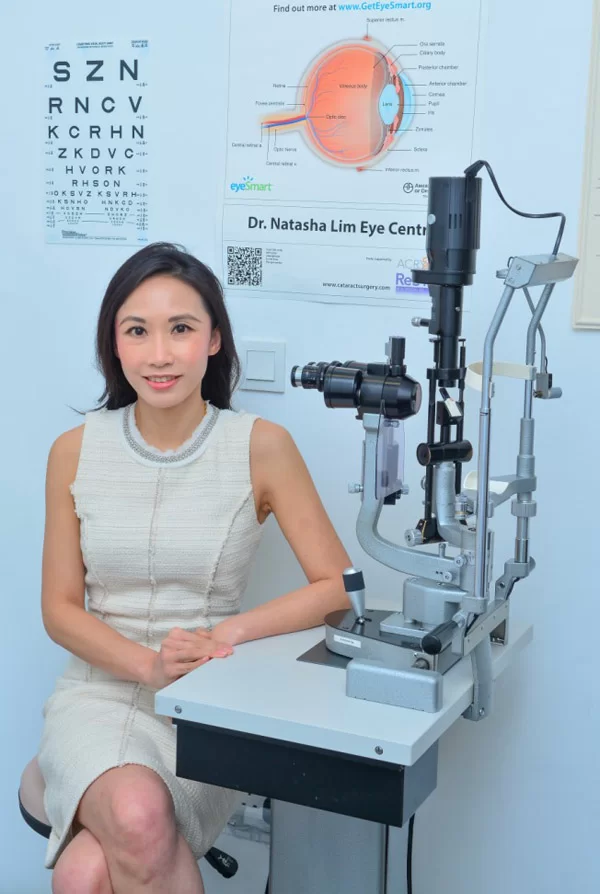Eye conditions
Presbyopia in Adults

Presbyopia causes reading to become blurred.

Presbyopia is an age-related eye condition that causes difficulty to read without glasses and affects people in their middle-age.
LENS IMPLANT SURGERY
Patients with cataracts need not wait for many years for their cataract to mature and harden before undergoing surgery. With the modern advances in ophthalmic skills and technology, soft cataracts are easily removed and people undergoing a cataract procedure have a once in a lifetime chance to change their imperfect eye errors (myopia, astigmatism and presbyopia) into the perfect eye with no refractive error at all, achieving total spectacle independence.
At Dr Natasha Lim Eye Centre, only scientifically proven, time-tested technologies are used to correct presbyopia. Patients are first assessed to see if they have cataracts or not. If they have cataracts, our patients have a choice between Multi-focal or Mono-focal lens implants, either of which when implanted during cataract surgery, is able to remove all refractive errors (eg myopia, astigmatism and presbyopia) to achieve spectacle independence. The procedure is highly successful, takes 15 minutes, and is performed under local anaesthesia.
Multi-focal lens technology:
Multi-focal lens implants are specially engineered to provide both a distance focus, and a near focus at all times. Multi-focal lens implants are similar to wearing “progressive” spectacles which allow distance, intermediate and near focus. Instead of wearing glasses on the face, multi-focal lens implants are implanted inside the eye, so that post-operative glasses are not necessary. The brain will neuro-adapt to the multi-focal visual system post-operatively, such that it will automatically select for the eye to focus at whatever is the required distance.
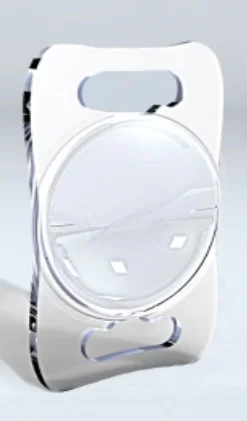
Mono-focal lens technology:
If you choose mono-focal implants, spectacle independence is achieved by creating mono-vision. Mono-vision can be achieved during cataract surgery by implanting a mono-focal lens in one eye that is set for near vision, while implanting another mono-focal lens in the other eye that is set to see far. This process of neuro-adaptation by the brain to mono-vision usually takes 1 – 2 weeks, after which the brain begins to use the eyes naturally in a mono-vision manner, and a person becomes unaware which eye is focused at near and which is focused at distance.
Dr Natasha Lim Eye Centre uses aspheric HD (high definition) mono-focal lenses, alike modern HD LED TV screens, offering the sharpest possible image for modern cataract surgery patients. These lens implants provide excellent contrast sensitivity and extremely high quality of vision in a variety of lighting conditions. Individuals who require excellent distance vision, such as golfers, or those who frequently drive at night, may be well suited with a HD mono-focal implant. For people with eye diseases such as macular degeneration or glaucoma, the compromised state of the retina may often be assisted by the HD to form the sharpest image possible on the retina.
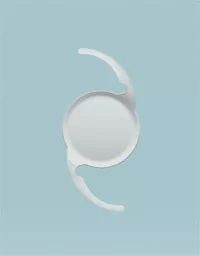
Patients electing to have lens implant surgery to reduce their need for glasses will never have to worry about developing cataracts later on in life. Once removed, a cataract can never return. The power carried in the new lens implant is stable for the rest of your life.
LASIK SURGERY
Younger patients with presbyopia but no cataract should opt for LASIK. LASIK is a type of eye surgery that uses a laser to change the shape of the cornea, there by treating any refractive errors.
A currently available FDA-approved procedure that corrects presbyopia is known as mono-vision LASIK, where one eye is corrected for distance vision, and the other eye is corrected for near vision. Ina simple, pain-free, 10 minutes procedure under topical anaesthesia only, all short-sightedness, astigmatism and presbyopia will be “zapped” away by a laser. During your assessment at our eye centre, you will get a chance to experience mono-vision with trial lenses before undergoing mono-vision LASIK. Another option, Implantable Contact Lens (ICL), is an alternative for patients who have thin corneas who are not suitable for LASIK surgery, ICLs can be used to correct presbyopia too.

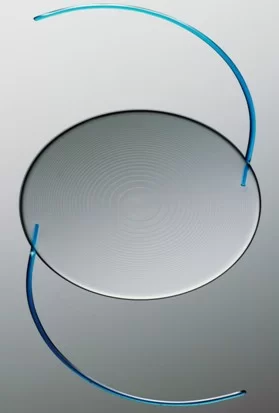
Multi-focal lens implant to correct presbyopia during cataract surgery
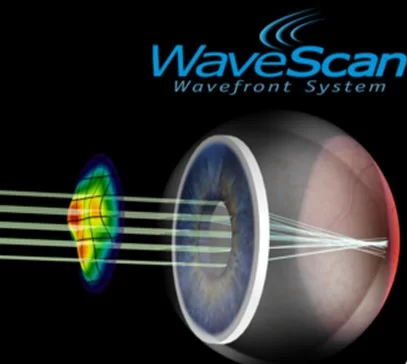
Mono-vision LASIK surgery for correction of presbyopia
Authored by: Dr Natasha Lim
More than 20 years of experience in Ophthalmology
Internationally renowned pioneer LASIK surgeon for LASIK surgery in Singapore
Education
MBBS (UK)
B.MED. Sci (UK)
MRCOphth (Lond)
FRCOphth (Lond)
Medical Director & Senior Consultant
Ophthalmology
Specialisation
- LASIK
- SILK (Lenticule Extraction)
- LASEK, PRK
- Implantable Contact Lens (ICL)
- Cataract Surgery
- 100% Bladeless Laser Cataract Surgery
- Presbyopia Correction


